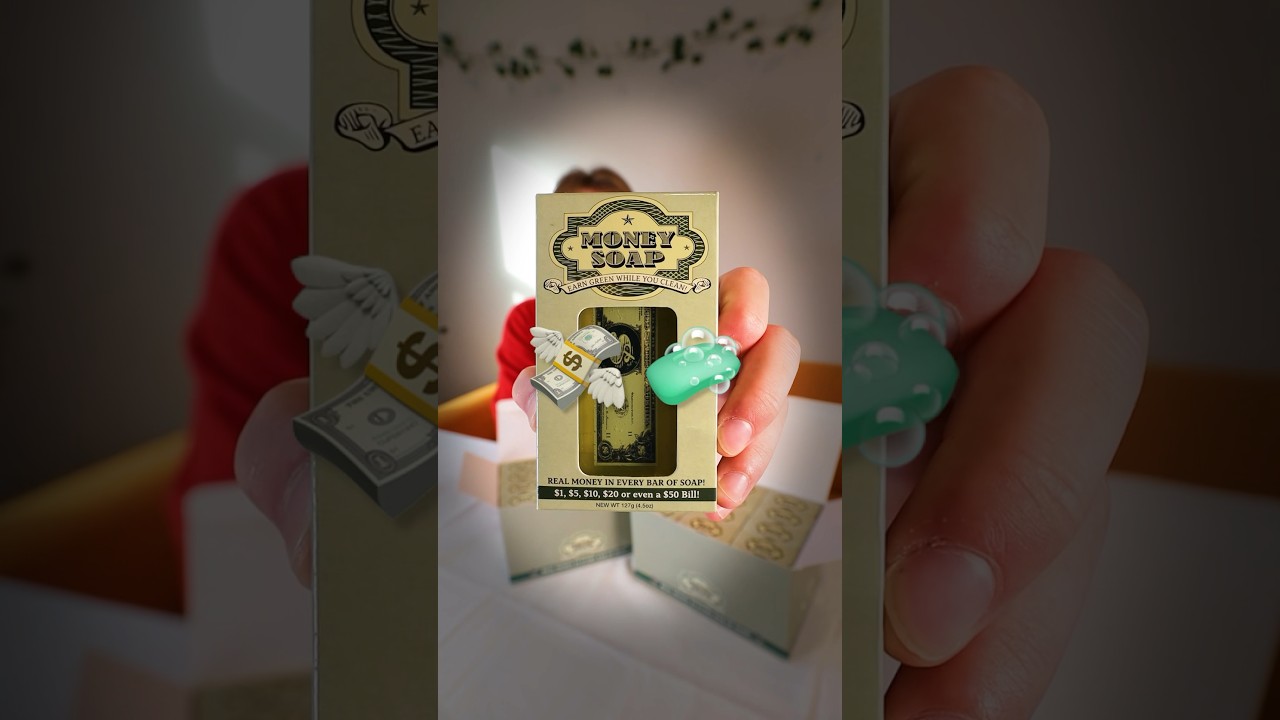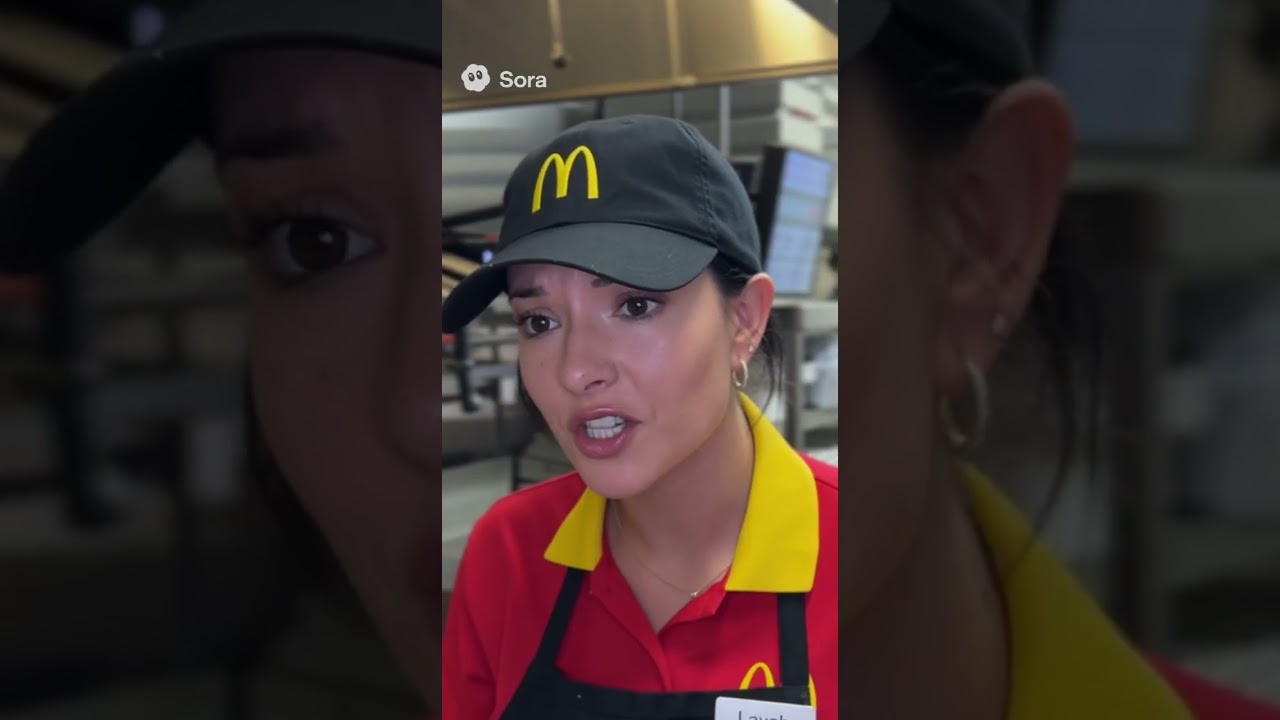Video
MASSIVE NEWS FOR XRP! (CLOSING DOWN??)
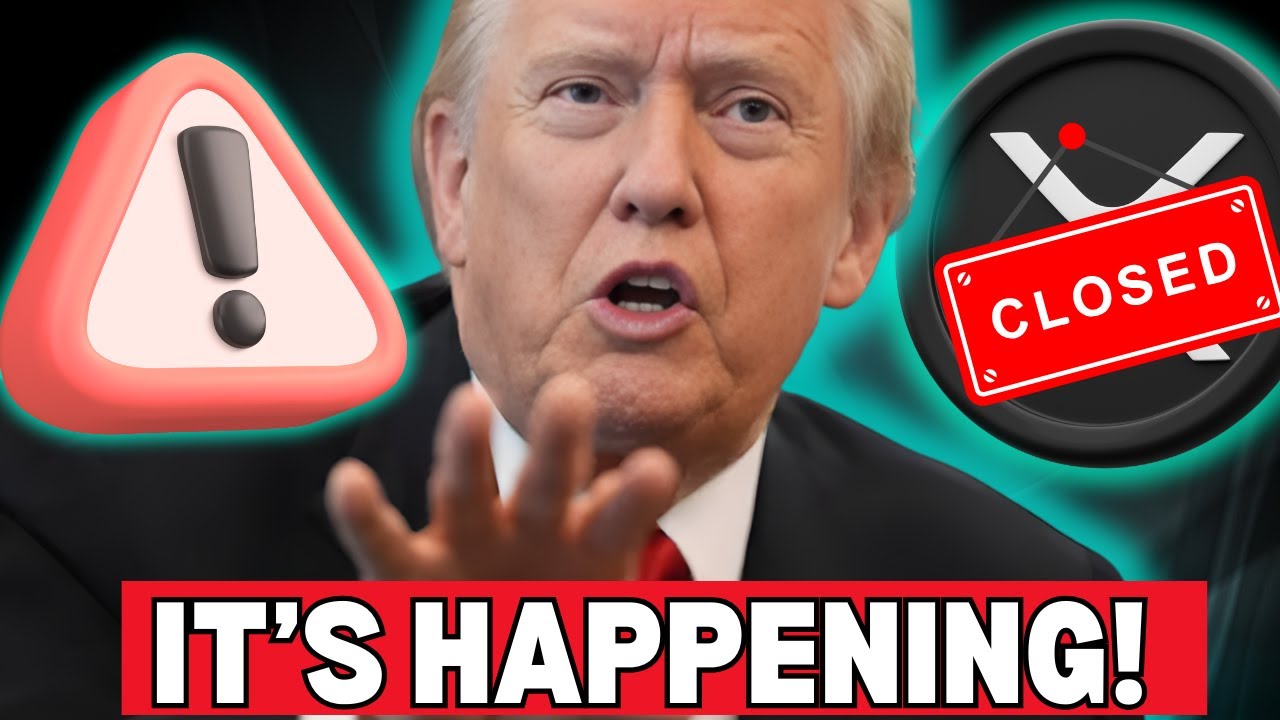
MASSIVE NEWS FOR XRP! (CLOSING DOWN??)
The new Telegram group, join here, it is open and FREE to all – https://t.me/+LoW1GDD5rOI1YjM0
#xrp #xrpnews #xrpripple #cryptonews #crypto
My Website with all my affiliate links (Bydfi, BTCC) where you can get access to the Whale group – https://moneymakeravilev.kit.com/f54fe06808
Follow me on X – https://x.com/MakerLev
DISCLAIMER: Avi Lev, including but not limited to any guests appearing in his videos, are not financial/investment advisors, brokers, or dealers. They are solely sharing their personal experience and opinions; therefore, all strategies, tips, suggestions, and recommendations shared are solely for entertainment and educational purposes. There are financial risks associated with investing, and Avi Lev’s results are not typical; therefore, do not act or refrain from acting based on any information conveyed in this video, webpage, and/or external hyperlinks. For investment advice please seek the counsel of a financial/investment advisor(s), and conduct your own due diligence
Some of the links are affiliate links
COMMENT DISCLAIMER: I WILL NEVER CONTACT YOU IN ANYWAY (ON ANY PLATFORM). IF YOU GET CONTACTED BY ANYONE CLAIMING TO BE ME, IT IS NOT ME. FOR EXAMPLE, COMMENTS SHOWING WHATSAPP NUMBERS ARE NOT ME. ADDITIONALLY, PEOPLE HAVE THE ABILITY TO CALL YOU USING AI TECHNOLOGY SO IT SOUNDS LIKE ME. THIS AGAIN IS NOT ME. NEVER WILL I CONTACT YOU IN ANY WAY. PLEASE DO NOT CLICK ON ANY LINKS IN THE COMMENT SECTION BELOW. DO NOT RESPOND OR INTERACT WITH ANYONE ON ANY PLATFORM CLAIMING TO BE ME OR WORKING ON MY BEHALF – THEY ARE SCAMMERS.
This video is for informational and entertainment purposes only. It does not constitute financial, investment, or trading advice.
I am not a financial advisor. All opinions expressed in this video are my own or those of the individuals referenced.
You should always do your own research and consult with a licensed professional before making any financial decisions.
Cryptocurrency investments carry risk, and past performance is not indicative of future results.
The mention of any price targets, predictions, or market commentary should be understood as opinion — not fact or guarantees
The company’s services and content are not directed to, and are not intended for,residents of Israel
This channel provides global crypto market analysis and educational content in English. Our content is created for a global audience and is NOT intended for, marketed to, or directed at residents of Israel. All content is for informational purposes only and does not constitute financial advice.
tags –
xrp price,xrp price prediction,crypto news,xrp news,xrp ripple,ripple xrp,xrp news today,ripple xrp news,xrp crypto,xrp news today now,xrp today,xrp lawsuit,ripple news,xrp ripple news,xrp analysis,xrp coin,crypto news today,ripple price,xrp 2021,xrp sec,xrp technical analysis,xrp prediction,ripple sec news,cryptocurrency news
xrp price,xrp price prediction,crypto news,xrp news,xrp ripple,ripple xrp,xrp news today,ripple xrp news,xrp crypto,xrp news today now,xrp today,xrp lawsuit,ripple news,xrp ripple news,xrp analysis,xrp coin,crypto news today,ripple price,xrp 2021,xrp sec,xrp technical analysis,xrp prediction,ripple sec news,cryptocurrency news
xrp price,xrp price prediction,crypto news,xrp news,xrp ripple,ripple xrp,xrp news today,ripple xrp news,xrp crypto,xrp news today now,xrp today,xrp lawsuit,ripple news,xrp ripple news,xrp analysis,xrp coin,crypto news today,ripple price,xrp 2021,xrp sec,xrp technical analysis,xrp prediction,ripple sec news,cryptocurrency news
xrp price,xrp price prediction,crypto news,xrp news,xrp ripple,ripple xrp,xrp news today,ripple xrp news,xrp crypto,xrp news today now,xrp today,xrp lawsuit,ripple
source
Video
GOLD & SILVER Not Stopping!!! How Bad Is This For Crypto?!?
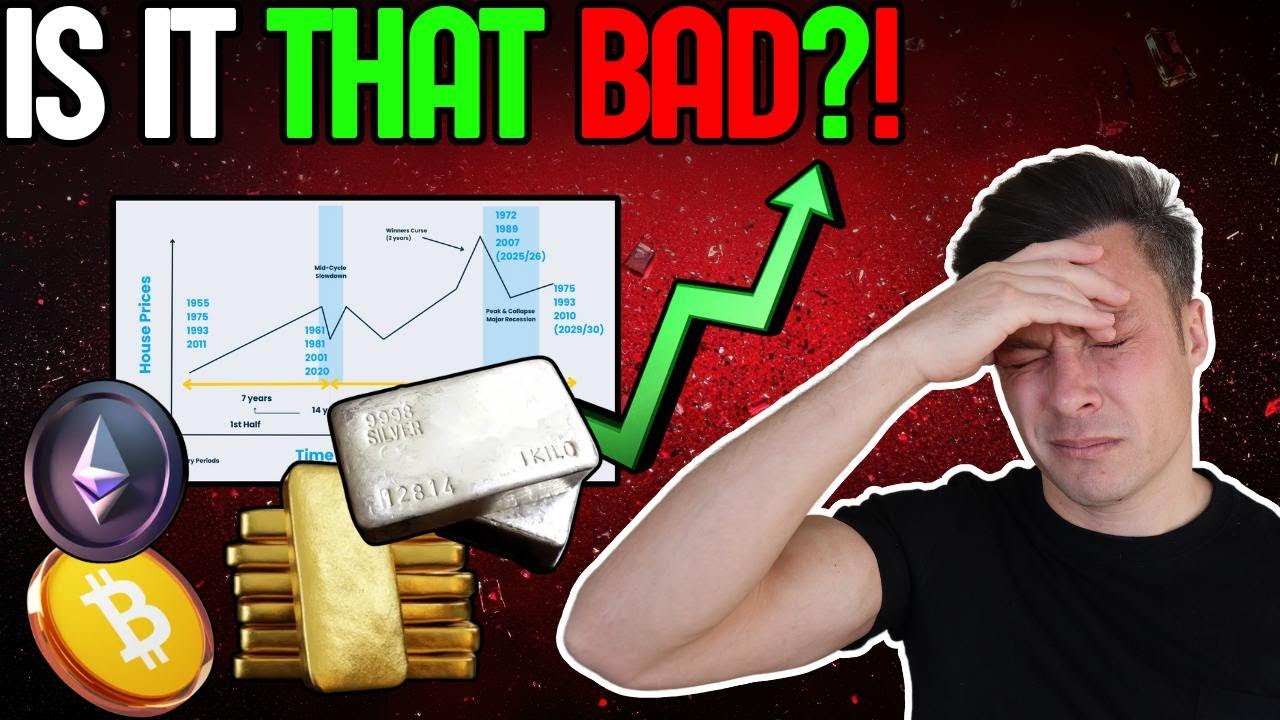
Crypto Continues to struggle while gold and silver rip higher and higher. Should we panic about this as crypto holders?
Free Trading Group – Join Now to Unlock Signals 📈 https://THOC.short.gy/TradingCM
Bitunix – Trade to Earn, Exclusive Prize Pool 👏 https://THOC.short.gy/BitunixCM
Join My Inner Circle — the hangout for sharp minds https://whop.com/the-house-of-crypto/
My new Twitter, alpha post daily https://x.com/Peter_thoc
👇👇👇 Unlock Incredible Benefits 👇👇👇
💎 Join My Inner Circle for Exclusive Insights and Community Hivemind💎
✅ Sign-up for only $19.99 / month
👉 https://whop.com/the-house-of-crypto/ 👈
🌔 Join The Moon House for Experts’ Alpha 🌖
✅ Maximize your learning with weekly live calls and Q&A sessions.
👏 https://whop.com/the-moon-house/ 👏
💰No KYC | 400+ altcoin pairs | Fastest new coin listing 💛 WEEX Exchange💰
✅ Deposit, trade and get rewards!
👁️ Referral code: 2dfo
👏 https://THOC.short.gy/WEEX 👏
💰NO KYC & NO VPN + Rewards 💚 Bitunix Exchange💰
✅ Trade anywhere in the world with a discount on your trading fee
👁️ Referral code: rdhq
👏 https://THOC.short.gy/Bitunix 👏
📈 Automate Your Crypto Trades – Copy My Bots! ✅
💰 Sign up & deposit to get up to $1,000 bonus
👏 https://THOC.short.gy/pionexautotrading 👏
🔥 Join the group: Pionex Beta Group – You’re early!
👉 https://thoc.short.gy/Pionex
👀 Watch A Tutorial 👀 https://www.youtube.com/watch?v=_axCeX-qN-M
💰NO KYC | Fast Execution Customer Service Team 🧡 BloFin Exchange💰
✅ 20% Deposit Bonus | Exclusive Airdrop 🎁
👁Referral code: HouseOfCrypto
👏 https://THOC.short.gy/BloFin 👏
💰Fast Listing Coins💙 MEXC (No KYC)💰
✅ Visit MEXC below for exclusive House Of Crypto Signup Bonuses
👁️ Referral code: mexc-12QQEf
👉 https://THOC.short.gy/mexc 👈
💰Kyc to get started 🖤 OKX Exchange💰
✅ Access top crypto markets with great liquidity available.
👁️ Referral code: houseofcrypto
👏 https://THOC.short.gy/OKX 👏
$$$$$$$$$$$$$$$$$$$$$$$$$$$$$$$$$$$$$$$$$$$$$
🔒Secure and easy to use, trusted by millions worldwide.🔒
✅ Get Your Ledger Crypto Wallet with an Exclusive Discount!
***This is important, as crypto hacks occur frequently.***
👏 https://shorturl.at/Nt2WZ 👏
🔑 Secure Your Trading with a VPN 🔑
✅ Get 4 Months Free With Nord VPN!
👏 https://nordvpn.com/houseofcrypto 👏
🔒Protect Your Asset with a Hardware Wallet🔒
✅ Visit D’cent Below For A HUGE Exclusive Discount!
👏 https://tinyurl.com/2z5y9pxd 👏
$$$$$$$$$$$$$$$$$$$$$$$$$$$$$$$$$$$$$$$$$$$$$
🎭 Want To Chat With Other Crypto Enthusiasts? 🎭
✅ Join The FREE Telegram
👉 https://THOC.short.gy/FreeTelegram 👈
📬 Subscribe to our weekly goodies: https://www.thehouseofcrypto.io/subscribe 📬
Gear up for the moon! 🚀 Shop exclusive merch at wenlambo.shop
🔥 Find Everything Here: https://linktr.ee/thehouseofcrypto 🔥
🎭 Follow us here to stay updated every day:
👉 Website: https://www.thehouseofcrypto.io/
👏 X.com: https://x.com/Peter_thoc
🙌 LinkedIn: https://www.linkedin.com/company/thehouseofcrypto/
💪 Instagram: https://www.instagram.com/the.houseofcrypto/
👉Telegram: https://THOC.short.gy/FreeTelegram
***************************************************************************
𝗡𝗢𝗧𝗘: Some of these links are affiliate links, which means I may earn a small commission at no extra cost to you. Our team also works closely with the exchange to bring the community exciting campaigns and incentives.
𝗗𝗜𝗦𝗖𝗟𝗔𝗜𝗠𝗘𝗥: The information contained herein is for informational purposes only and not to be construed as financial, legal or tax advice. The content of this video is solely the opinions of the speaker who is not a licensed financial advisor or registered investment advisor. Trading cryptocurrencies poses considerable risk of loss. The speaker does not guarantee any particular outcome.
source
Video
7 Best Money Management Hacks | Personal Finance Tips | Sonu Sharma

For Corporate Training Workshops, feel free to connect at +91 91513 13101 or visit our website https://sonusharma.in
Buy Our New Book “सफलता के 24 अध्याय” :
Amazon – https://amzn.to/4nwa567
Flipkart – https://fkrt.it/x52vITNNNN
Buy Term Insurance online and Get discount UPTO 10%👇
https://tinyurl.com/2vxytfkt
👉Join Our Whatsapp Channel – https://shorturl.at/xjY87
————————————————————————————————
Money Management Tips | Financial Education in Hindi | Personal Finance | How to Manage Your Money | Financial Freedom
Welcome to the Sonu Sharma Channel, In this video, Mr Sonu Sharma shares 9 straightforward yet effective strategies to enhance your financial management skills. He shares practical tips and hacks to help you take control of your money and achieve your financial goals.
Whether you’re looking to save more, budget effectively, or invest wisely, these simple tips will empower you to make better financial decisions and secure your financial future. Like this video and Hit the Subscribe button if you found this video helpful!
#moneymanagement #money #sonsharma
00:00 – Starting of the video
01:40 – 1st Money Management Hacks
02:55 – 2nd Money Management Hacks
05:28 – 3rd Money Management Hacks
07:15 – 4th Money Management Hacks
08:53 – 5th Money Management Hacks
11:43 – 6th Money Management Hacks
14:17 – 7th Money Management Hacks
SUBSCRIBE Our Other Channels –
📌Sonu Sharma Spiritual – https://www.youtube.com/@SonuSharmaSpiritual
📌Sonu Sharma Show – https://www.youtube.com/@TheSonuSharmaShow
📌Sonu Sharma Motivation – https://www.youtube.com/@SonuSharmaAcademy-u5b
📌Sonu Sharma Shorts – https://www.youtube.com/@sonu_sharmamotivation
About Mr. Sonu Sharma :
Mr. Sonu Sharma, the founder of DYNAMIC INDIA GROUP (INDIA), is a multi-talented individual encompassing the roles of an Author, Educator, Business Consultant, and successful Entrepreneur. With his exceptional speaking skills, he has become a highly sought-after inspirational speaker in India, known for motivating and empowering individuals to realize their true potential. Taking his dynamic messages to a global audience, he has impacted lives across different corners of the world.
With over 21 years of dedicated research and understanding in the Direct Sales Industry, Mr. Sharma has steered numerous organizations toward growth and fulfillment. His dynamic workshops have benefited tens of thousands of people all over INDIA, and his reach has extended to 114 countries, amassing an audience of 900+ million on YouTube in the last four years alone. Notably, his live seminars in India have seen an attendance of over 20 Lac people in recent years.
Mr. Sonu Sharma has achieved sensational success on social media platforms, with over 3 billion views on YouTube and Facebook, and a massive following of 30 million+ loyal supporters. Today, he serves as a consultant for some of the world’s leading corporate houses, further solidifying his impact in the business world.
————————————————————————————————————
Connect with Mr. Sonu Sharma :
🌎 Website: www.sonusharma.in
📸 Instagram: https://www.instagram.com/OfficeSonuSharma/
📱 Facebook: https://www.facebook.com/OfficeSonuSharma/
📩 Telegram: https://t.me/SonuSharmaCommunity
🐦 Twitter: https://twitter.com/OfficeSSharma
🛄 Linked in: https://www.linkedin.com/in/officesonusharma/
📲 Official Android App: https://bit.ly/sonusharma-app
📞 For Business Enquiries: +91 91513 13101
————————————————————————————————————
source
Video
Money | Cover by – Anukriti #anukriti #coversong #money #lisa #blackpink
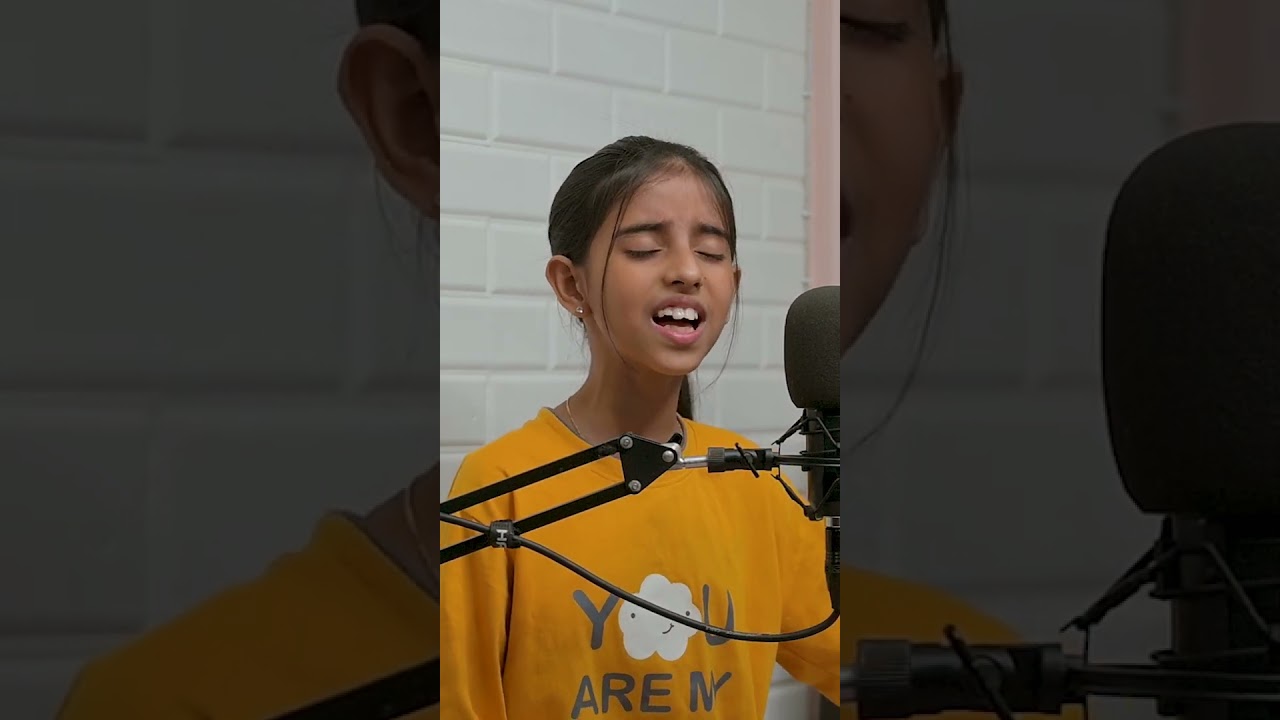
Video Link – https://youtu.be/OCGuCQ9kzRQ?si=nsrrgl1W3RDaWuuD
source
Video
XRP HISTORY HAS *JUST* BEEN MADE (FUTURE OF FINANCE!)
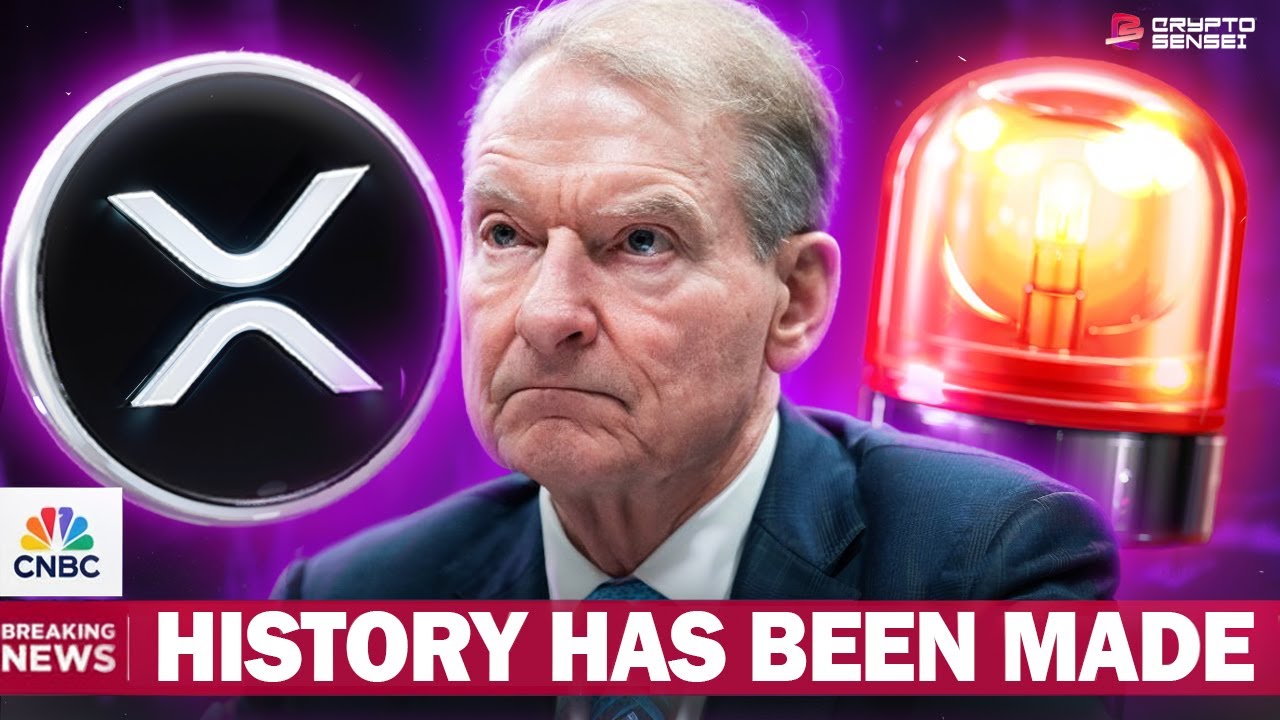
XRP is back at the center of U.S. crypto policy as the Senate advances the Clarity Act, moving market structure legislation closer to reshaping regulated digital assets.
In this video, I break down how the Clarity Act, SEC involvement, and institutional access through ETFs and retirement accounts connect to XRP and the XRP Ledger. This explains why regulation, liquidity, and infrastructure upgrades continue to position XRP at the core of the next phase of adoption.
Timestamps
00:00 Senate advances the Clarity Act
00:44 What the Senate vote means for crypto regulation
01:23 SEC role in digital asset market structure
02:42 Retirement accounts and institutional crypto access
03:54 Why retirement flows matter for XRP liquidity
04:55 XRP, Bitcoin, and Ethereum ETFs in Japan
05:40 SBI and Franklin Templeton index products
06:25 Fidelity and the digital dollar stablecoin
07:48 XRP Ledger lending protocol and upgrades
08:57 Institutional credit and lending on XRPL
10:18 Legal clarity for XRP under U.S. securities law
11:06 DTCC, SWIFT, and global tokenization momentum
If you follow XRP, institutional crypto adoption, regulated digital assets, and global payments and settlement infrastructure, this breakdown provides important context on where markets are heading next.
🔥Thanks for supporting the channel. Like, share, and comment if this helped clarify what’s really happening.
💳 Uphold – Trade, Spend & Earn XRP Rewards
➖ U.S. Debit Card: https://uphold.sjv.io/559kj9
➖ Uphold Website: https://uphold.sjv.io/dOmGMq
🔸4% on elite card / 2% on virtual card🔸
🛡️Hardware Wallets I Use for XRP
D’CENT Biometric Wallets
– Single Device – 18% Discount ($159 → $129)
Biometric Wallet – Affiliates
– Two-Pack – 31% Discount ($318 → $219)
Biometric Wallet 2X Package – Affiliates
Ledger – Official Store
https://www.ledger.com/crypto-sensei
🔗Contact & Collaborations
– Business: cryptosensei@cryptonairz.com
– Collabs: BD Manager – @Jaalyn_T (Telegram)
– Collab Form: https://forms.gle/E6fskio5BBvd4zVn9
– Social Links: https://linktr.ee/Crypt0Sensei
(YouTube partnerships & brand deals only – no agencies)
📰FREE XRP Newsletter: https://joincryptonairz.com/Newsletter
❗Full Legal & Regulatory Disclaimer
https://docs.google.com/document/d/1T_wTsSkXDZqdgKDUOKfIEKF-a7ur2kX8gw-e3aAq_Q4/edit?usp=sharing
#xrp #ripple #cryptoregulation
source
Video
5 Rules of Money That Help You Build Wealth

👉 Start Investing in Stock Market 📈 Open Free Demat Account: https://upstox.com/open-account/?f=2YPX
*****************************************************************
👉Consultation Booking Registration Form: https://leads.automationmagnet.com/
👉Book 1-on-1 Guidance Call:https://leads.automationmagnet.com/lp-1
*****************************************************************
👉 Best Software for Option Trading: https://nseoptionchain.ltpcalculator.com/signup
*****************************************************************
👉 Order Candlestick Patterns Book on Amazon: https://amzn.to/4fQYU3G
*****************************************************************
#WealthBuilding #PushkarRajThakur #FinancialFreedom
About Pushkar Raj Thakur :
Pushkar Raj Thakur is India’s Leading Educator & Finance Coach.
He Holds 2 Guinness World Records for the Largest Financial Investment Lesson and Largest Social Media Marketing Lesson.
With 14 Million+ Subscribers on Youtube & 2 Million+ Followers Instagram, he is consistently creating content around Financial Education, Stock Market and Current Affairs.
– NISM Certified Research Analyst
– NISM Certified Mutual Fund Distributor
– IRDA Certified
Follow us on:
👉 Telegram: https://t.me/PushkarRajThakurOfficial
👉 Whatsapp: https://bit.ly/PRTWhatsappChannel
👉 Facebook: https://bit.ly/PushkarRajThakurFb
👉 Instagram: https://www.instagram.com/pushkarrajthakur
👉 Youtube: https://youtube.com/@PushkarRajThakurOfficial
👉 Twitter: https://x.com/PushkarRThakur
👉 LinkedIn: https://www.linkedin.com/in/pushkarrajthakur
👉 http://www.pushkarrajthakur.com
To Join Our Courses Call @ 9999 470 710
source
Video
billionaire|| billionaire by his own work | trillions dollar in one frame, Paisa, Elon musk
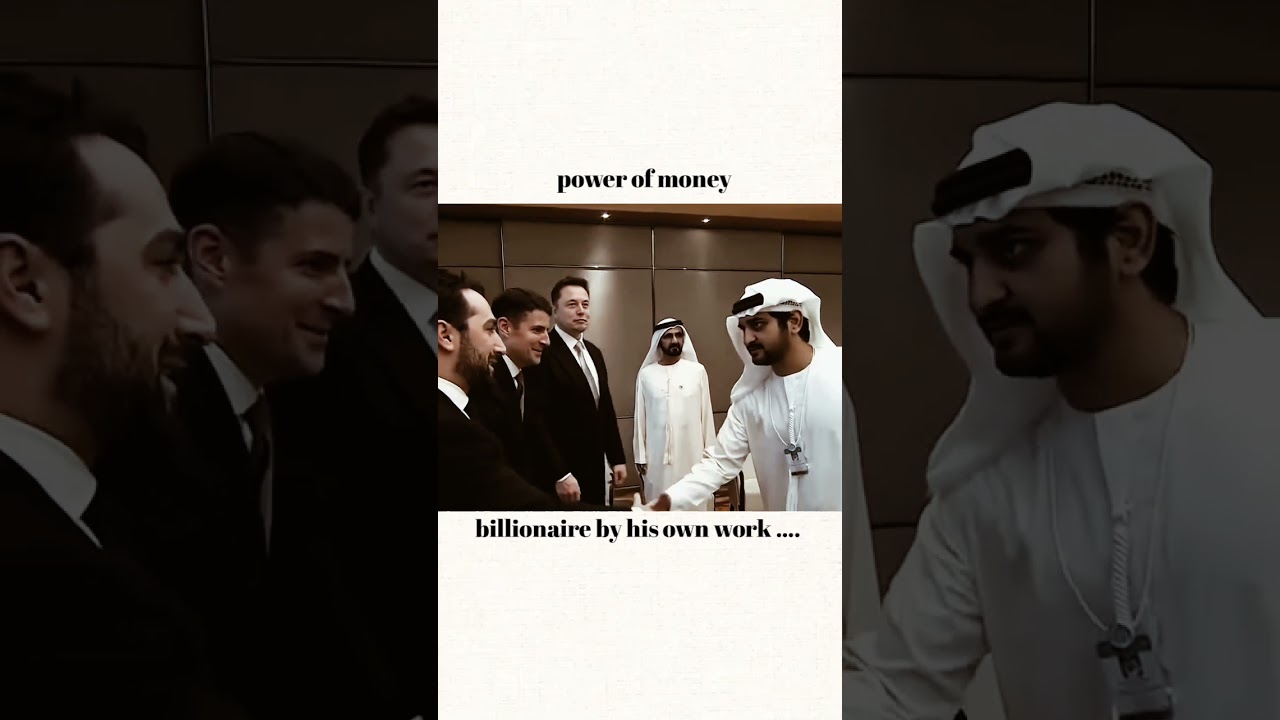
Power of money|| billionaire by his own work | trillions dollar in one frame, Paisa, Elon musk
The credit goes to respective owners
Don’t give me compywright
DM for removal
Follow me on instagram:-
https://www.instagram.com/hustlevoltt?igsh=MTF6dXU2cXgwYWZ2Zg==
#shorts #viralshorts #trendingshorts #ytshorts
source
Video
MAJOR XRP WARNING!!! IS IT *OVER*??? (US CHOSES BANKS OVER RIPPLE?!?!)
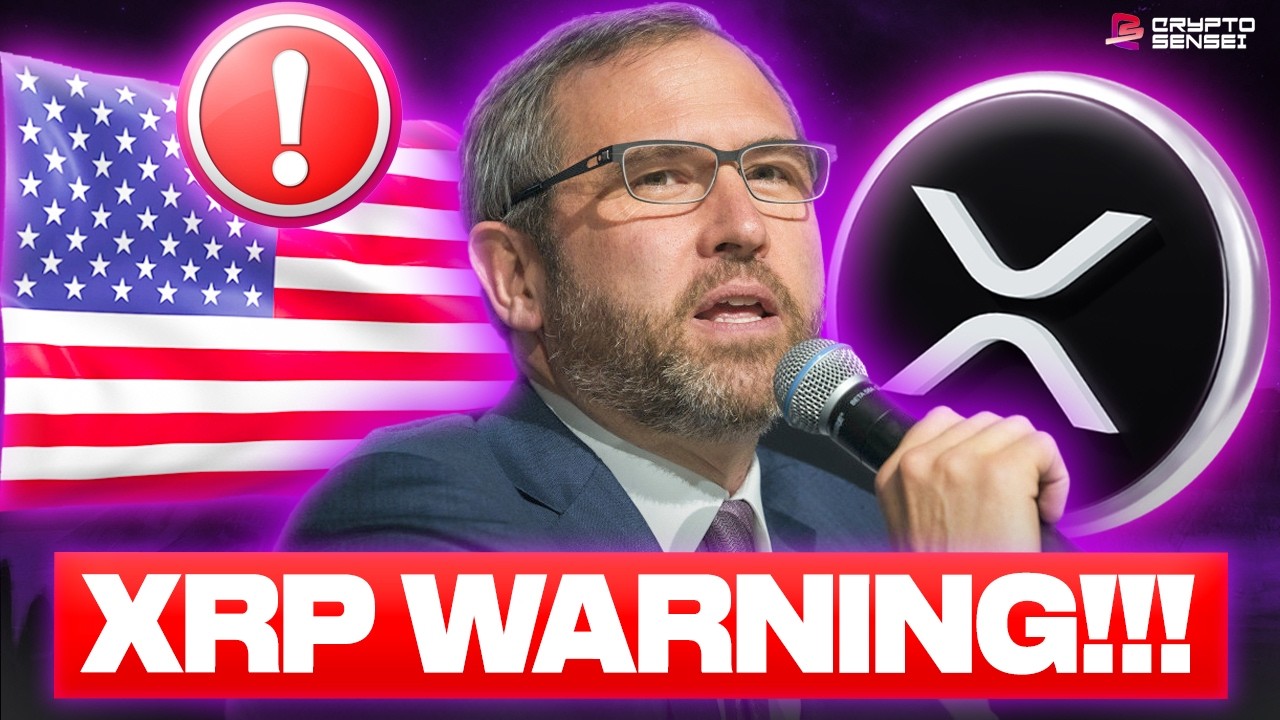
XRP is back at the center of U.S. crypto regulation as Congress advances market structure legislation and Ripple responds to shifting political and banking priorities.
In this video, I break down the recent Clarity Act developments, why the White House appears aligned with major banks, and how XRP, RLUSD, and tokenization are being positioned inside regulated financial infrastructure. This is about policy, institutions and market structure.
Timestamps
00:00 U.S. crypto regulation update
00:45 Brad Garlinghouse on market structure
01:40 Senate Agriculture Committee advances Clarity Act
02:35 Bipartisan tensions and White House stance
03:55 CFTC authority and digital commodities
05:15 SEC coordination and regulatory overlap
06:10 XRP ETF flows and institutional demand
07:45 Tokenization and future financial rails
09:30 Canary Capital on XRP, Hedera, Solana
10:25 RLUSD growth and stablecoin adoption
11:30 Ripple partnerships and settlement flows
13:40 Retirement accounts and crypto access
This video is for viewers focused on institutional crypto adoption, regulated digital assets, and the future of market structure and payments infrastructure.
🔥Thanks for supporting the channel. Like, share, and comment if this helped clarify what’s really happening.
💳 Uphold – Trade, Spend & Earn XRP Rewards
➖ U.S. Debit Card: https://uphold.sjv.io/559kj9
➖ Uphold Website: https://uphold.sjv.io/dOmGMq
🔸4% on elite card / 2% on virtual card🔸
🛡️Hardware Wallets I Use for XRP
D’CENT Biometric Wallets
– Single Device – 18% Discount ($159 → $129)
Biometric Wallet – Affiliates
– Two-Pack – 31% Discount ($318 → $219)
Biometric Wallet 2X Package – Affiliates
Ledger – Official Store
https://www.ledger.com/crypto-sensei
🔗Contact & Collaborations
– Business: cryptosensei@cryptonairz.com
– Collabs: BD Manager – @Jaalyn_T (Telegram)
– Collab Form: https://forms.gle/E6fskio5BBvd4zVn9
– Social Links: https://linktr.ee/Crypt0Sensei
(YouTube partnerships & brand deals only – no agencies)
📰FREE XRP Newsletter: https://joincryptonairz.com/Newsletter
❗Full Legal & Regulatory Disclaimer
https://docs.google.com/document/d/1T_wTsSkXDZqdgKDUOKfIEKF-a7ur2kX8gw-e3aAq_Q4/edit?usp=sharing
#xrp #ripple #clarityact #xrpetf
source
Video
Financial Literacy 101: Save Better, Invest Wiser with Armand Bengco | The Daily Dish
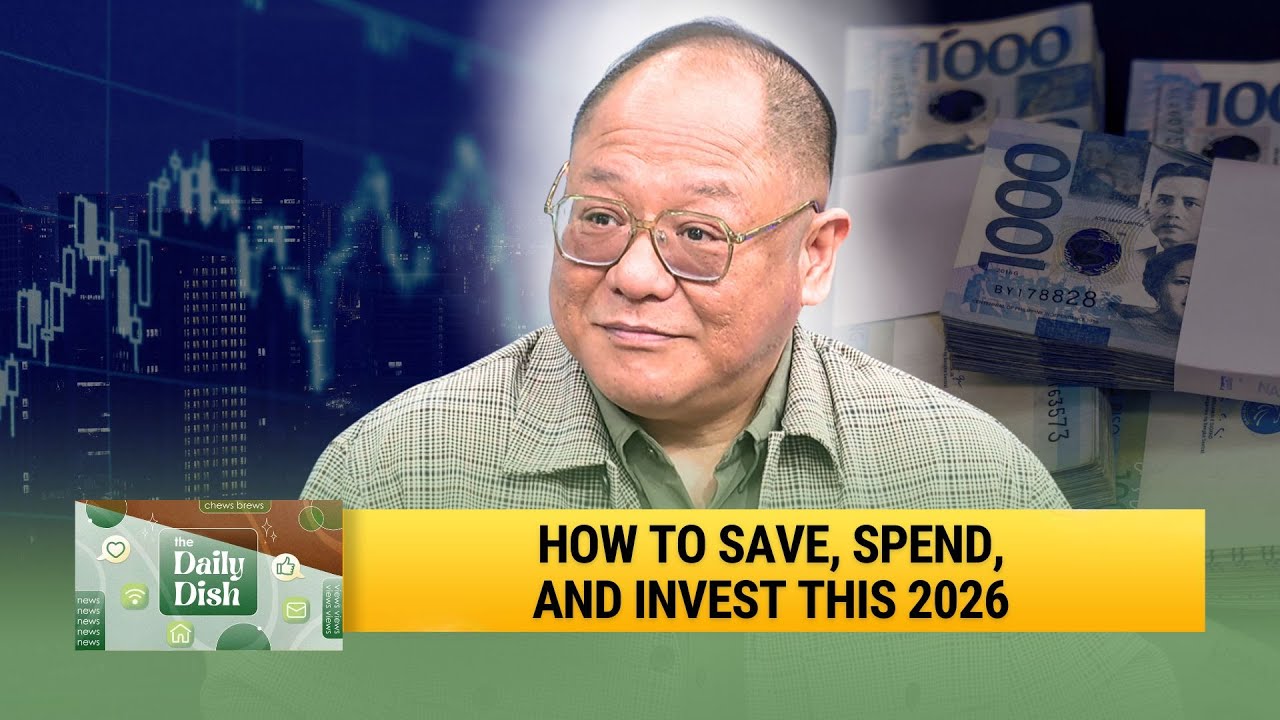
Join us as we welcome Armand Bengco, lead financial literacy advocate of Better Thrive PH, to share practical tips on saving, investing, and building healthier financial habits in 2026.
Learn why the beginning of the year is the best time to reassess your finances, how to manage bonuses, common mistakes to avoid, and how to set realistic financial goals.
Discover the essential rules for first-time investors and why financial literacy is key to long-term security.
Don’t miss this inspiring guide to achieving financial success—tune in now!
📺 Free TV Ch. 31, Cignal Ch. 24, Samsung TV Plus, TCL Smart TVs, Blast TV, AmasianTV
📱 Cignal Play, BNC YouTube and Facebook
Visit our Website: https://bnc.ph
Check out our official social media accounts:
https://www.facebook.com/bncphl
Tweets by bncdotph
https://www.instagram.com/bnc.ph
@bnc.ph
https://www.youtube.com/@bncphl
#bilyonaryonewschannel #bnc #dailydish
Warning: Unauthorized use of any BNC videos without proper approval will lead to legal action to the fullest extent of the law.
source
Video
Is Money Soap a Scam?
Video
I’M DONE WITH CRYPTO
-

 Crypto World5 days ago
Crypto World5 days agoSmart energy pays enters the US market, targeting scalable financial infrastructure
-
Crypto World6 days ago
Software stocks enter bear market on AI disruption fear with ServiceNow plunging 10%
-

 Politics5 days ago
Politics5 days agoWhy is the NHS registering babies as ‘theybies’?
-

 Crypto World5 days ago
Crypto World5 days agoAdam Back says Liquid BTC is collateralized after dashboard problem
-

 Video1 day ago
Video1 day agoWhen Money Enters #motivation #mindset #selfimprovement
-

 Tech3 hours ago
Tech3 hours agoWikipedia volunteers spent years cataloging AI tells. Now there’s a plugin to avoid them.
-

 NewsBeat5 days ago
NewsBeat5 days agoDonald Trump Criticises Keir Starmer Over China Discussions
-

 Politics2 days ago
Politics2 days agoSky News Presenter Criticises Lord Mandelson As Greedy And Duplicitous
-

 Crypto World4 days ago
Crypto World4 days agoU.S. government enters partial shutdown, here’s how it impacts bitcoin and ether
-

 Sports4 days ago
Sports4 days agoSinner battles Australian Open heat to enter last 16, injured Osaka pulls out
-

 Fashion5 days ago
Fashion5 days agoWeekend Open Thread – Corporette.com
-

 Crypto World4 days ago
Crypto World4 days agoBitcoin Drops Below $80K, But New Buyers are Entering the Market
-

 Crypto World2 days ago
Crypto World2 days agoMarket Analysis: GBP/USD Retreats From Highs As EUR/GBP Enters Holding Pattern
-

 Crypto World5 days ago
Crypto World5 days agoKuCoin CEO on MiCA, Europe entering new era of compliance
-
Business5 days ago
Entergy declares quarterly dividend of $0.64 per share
-

 Sports2 days ago
Sports2 days agoShannon Birchard enters Canadian curling history with sixth Scotties title
-

 NewsBeat1 day ago
NewsBeat1 day agoUS-brokered Russia-Ukraine talks are resuming this week
-

 NewsBeat2 days ago
NewsBeat2 days agoGAME to close all standalone stores in the UK after it enters administration
-

 Crypto World12 hours ago
Crypto World12 hours agoRussia’s Largest Bitcoin Miner BitRiver Enters Bankruptcy Proceedings: Report
-

 Crypto World5 days ago
Crypto World5 days agoWhy AI Agents Will Replace DeFi Dashboards


